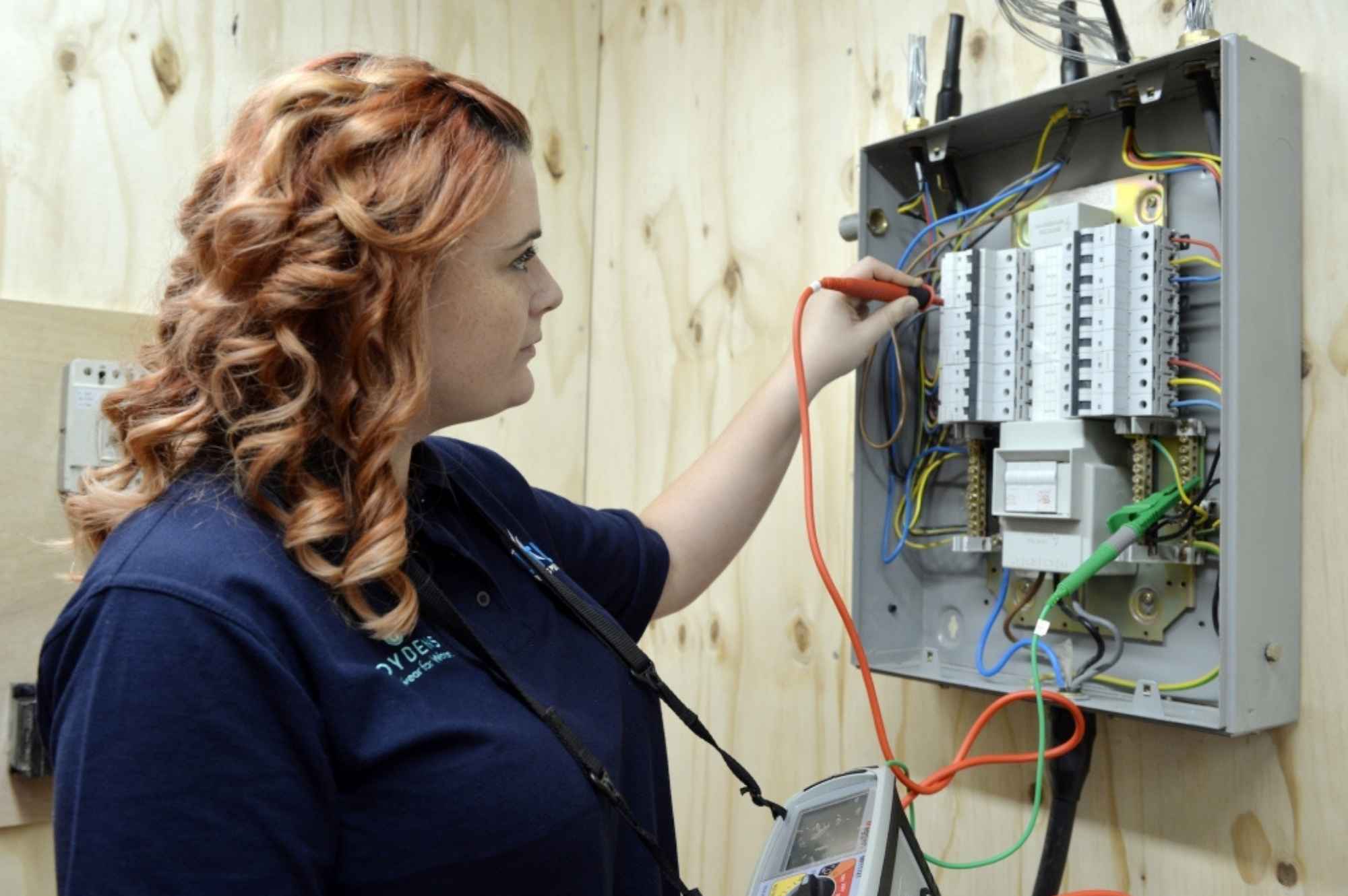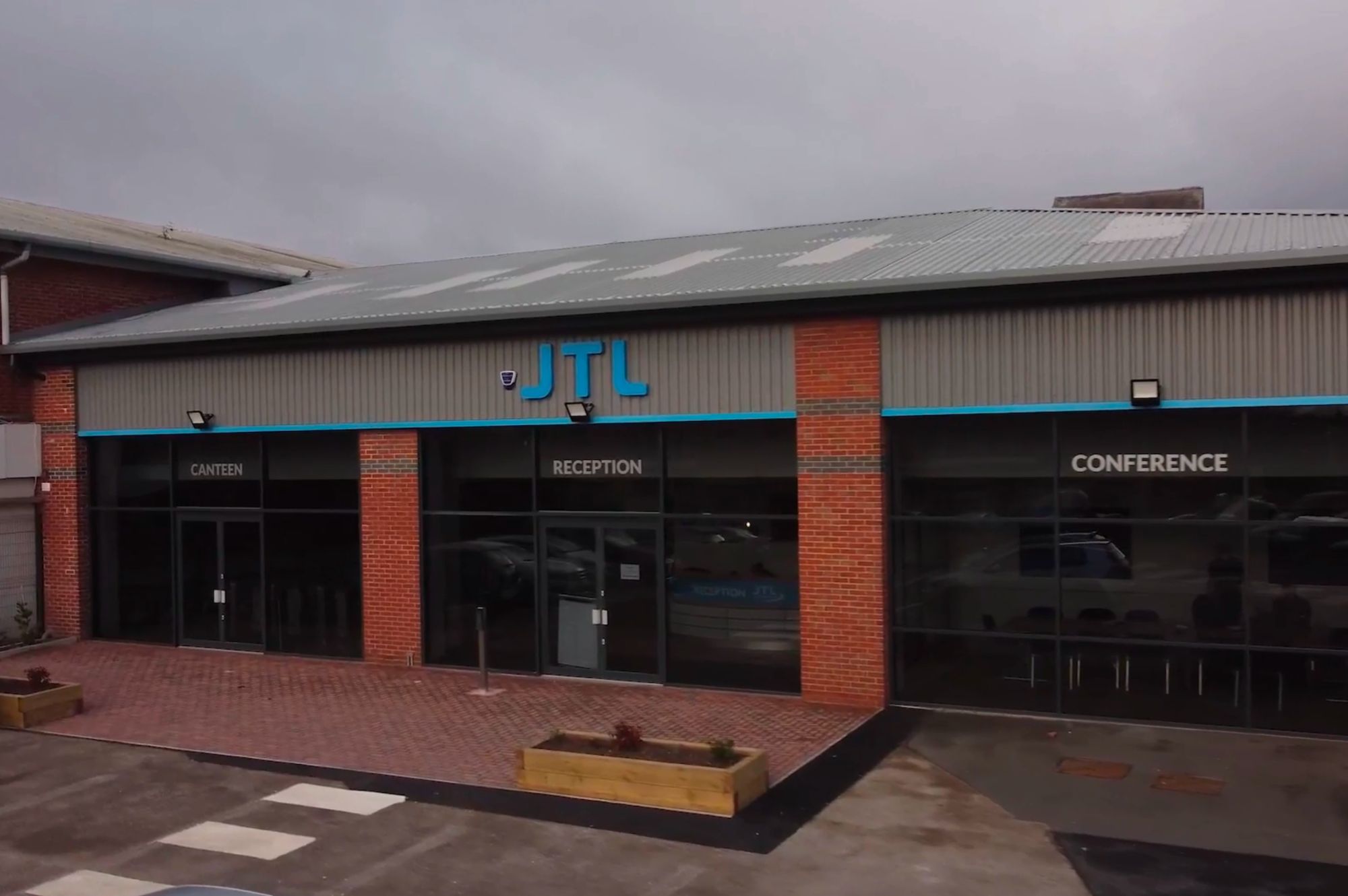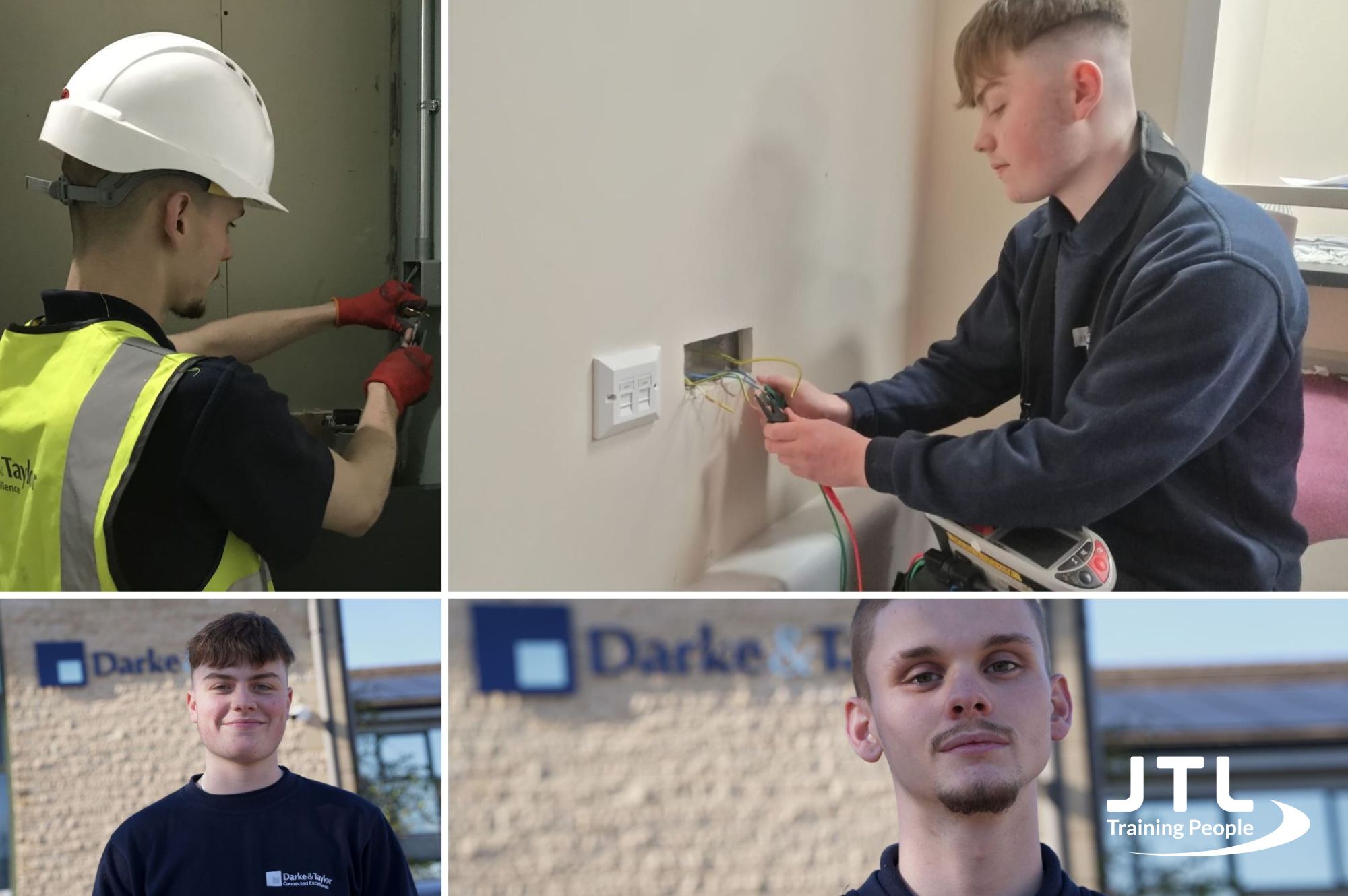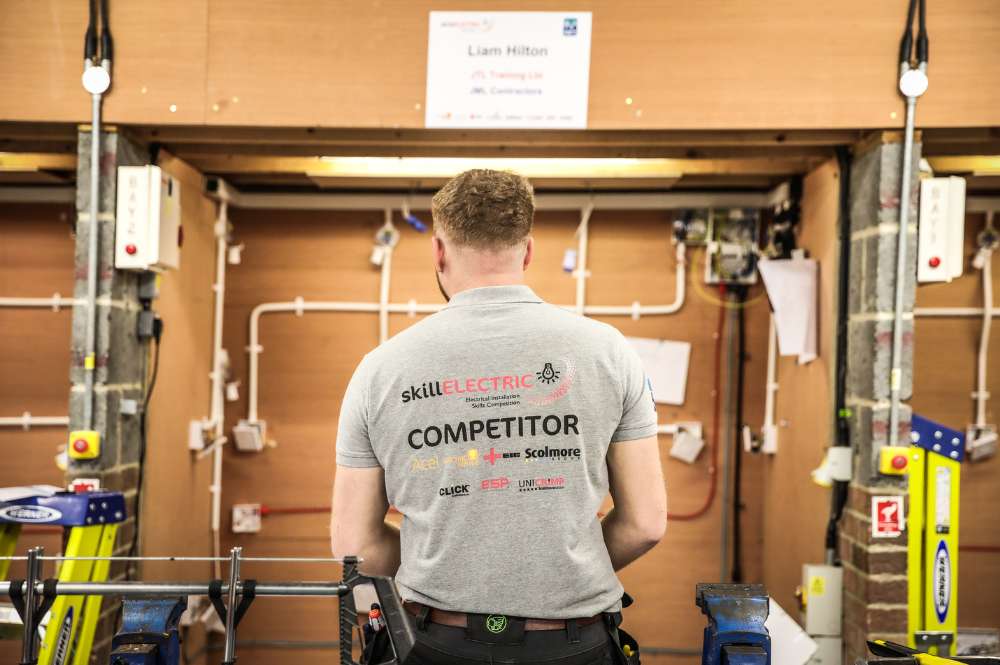
Course overview
Electricians install, maintain and repair electrical systems in industrial, commercial and domestic environments. Electricians might work in both indoor and outdoor settings. Electrical equipment and systems may include switchboards, motors, cables, fuses, thermal relays, fault current protection switches, heating, lighting, air conditioning and metering equipment as well as crime and fire alarm systems and renewable energy technologies. They are able to work on their own proficiently and work without immediate supervision in the most efficient and economical manner.

Module information
Course Details
This course normally operates on a typical day release plan, but will vary in different local colleges and on block release, where generally the classroom based knowledge units are delivered over two years.
Apprentices will complete the level 3 electrotechnical qualification to develop the skills, knowledge and behaviours they need to install, maintain and repair electrical systems in industrial, commercial and domestic environments.
Year 1
Understand health, safety and environmental considerations:
This unit will give learners an understanding of the relevant Health and Safety legislation, practices and procedures when installing and maintaining electrical systems and equipment. The knowledge covered in this unit underpins the practical application of Health and Safety legislation, practices and procedures
Electrical scientific principles and technologies:
This unit allows the learners to understand the relationship between electrical scientific principles and the competencies required of a qualified electrical operative. Its content is the knowledge needed by a learner to underpin the application of skills in the installation and maintenance of electrical systems and equipment.
Understand design and installation practices and procedures:
This unit is designed to enable learners to develop the skills required, and apply the associated knowledge, in order that they are able to demonstrate the competence required to design, prepare and install wiring systems and associated equipment in buildings, structures and the environment in accordance with approved industry practices, statutory and non-statutory regulations: The Electricity at Work Regulations (1989) The current edition of BS767, Health & Safety Act (1974), Building Regulations (2000)
Year 2
Understand how to plan and oversee electrical work activities:
This unit is designed to enable learners to understand the practices and procedures used when planning electrical installation and maintenance work activities. Its content is the knowledge needed by a learner to underpin the application of skills for overseeing and organising the work environment.
Organise and oversee the electrical work environment:
This unit covers the requirements for learners to Understand the requirements for liaising with others when organising and overseeing work activities, Understand the requirements for organising and overseeing work programmes, Understand the requirements for organising the provision and storage of resources that are required for work activities.
Understand terminations and connections of conductors:
This unit is designed to enable learners to understand and interpret the principles, practices and legislation associated with the termination and connection of conductors and cables in electrical systems. Its content is the knowledge needed by a learner to underpin the application of skills for terminating and connecting conductors and cables in electrical systems in accordance with statutory and non-statutory regulations/requirements
Year 3
Understand inspection, testing and commissioning:
This unit is designed to enable learners to understand principles, practices and legislation for the initial verification of electrical installations, with statutory and non-statutory regulations and requirements. Its content is the knowledge needed by a learner to underpin the application of skills for the inspection, testing, commissioning and certification of electrical installations.
Understand fault diagnosis and rectification:
This unit is designed to enable learners to understand principles, practices and legislation associated with diagnosing and correcting electrical faults in electrical systems and equipment in buildings, structures and the environment in accordance with statutory and non-statutory regulations and requirements. Its content is the knowledge needed by a learner to underpin the application of skills used for fault diagnosis and correction in electrical systems and equipment in buildings, structures and the environment.
Understand the Requirements of BS7671:
This unit covers Regulations BS 7671: 2018. and is designed as a standalone unit and should be used in conjunction with the standards set for the qualification to ensure full coverage of the learning requirements
Year 4
Preparing for and taking the End Point Assessment – AM2S
Delivery and Assessment
The course is delivered via day release over an academic calendar year at a JTL training centre or college partner near you however, some regions may offer block release. Your dedicated JTL Training Officer will be able to advise you.
Each apprentice will be allocated a dedicated Training Office to monitor and assess their learning progress throughout their apprenticeship.
There will be an End Point Assessment usually taken in Year 4 of the apprenticeship called the AM2S.
You can view full details of the Standard and the End Point Assessment here.

Why choose JTL
We offer a range of benefits for both apprentices and their employers.
- Free starter toolkit for apprentices in their first year*
- Free study books for apprentices to support with theoretical knowledge
- Support from a dedicated JTL Training Officer
- Access to our free recruitment service
- Practical training in fully equipped and supervised workshops
- Free advice and support from the Electrical Industries Charity
- Access to the JIB Registered Electrician Skills Development Fund
- A JIB PMES Apprentice or JIB ECS card
- Help accessing funds to support with training costs
- Ofsted have consistently awarded us as a Grade 2 GOOD Provider
- Our Regional and National Awards which celebrates high achieving apprentices
- Apprentices will gain a Construction Skills Certification Scheme (CSCS) card – to evidence they have the appropriate training and qualifications and are safe to work on construction sites.
**Once you have completed 3 months of your apprenticeship.

Equality & Diversity
JTL is committed to equality and diversity for all. We want to establish a culture of equality and diversity so that all applicants, apprentices, employers, sub-contractors and staff have the opportunity to work in and towards an environment that is non-discriminatory.
Equality and DiversityCareer progression
Fully qualified electrical apprentices can progress into roles such as supervising an apprentice, other supervisory roles, project management, owning and managing their own business, advanced engineering design and planning, teaching or training others.
As a fully qualified electrician you can go on to earn over £32k per year (£33,176)*
Related articles

JTL introduces Period Equity Project to further support learners and staff

National Apprenticeship Week 2023




